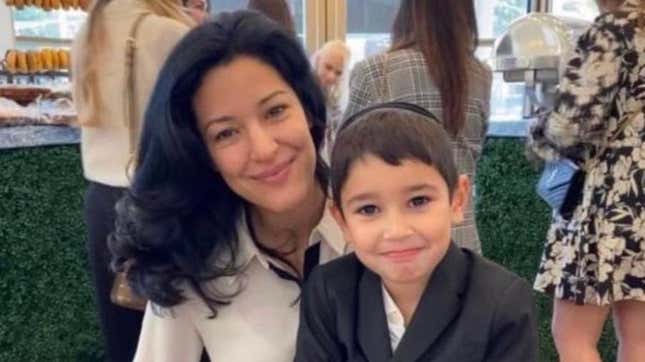Domestic Abuse Survivor Who Won Landmark Supreme Court Case Is Found Dead in Her Home
Last month, Narkis Golan made the chilling observation on Facebook that “many women end up dead” in cases like hers.
JusticePolitics

In June, the Supreme Court ruled unanimously in Golan v. Saada that Narkis Golan, a domestic abuse survivor who fled Italy to the U.S. with her child, couldn’t be forced to return her young son to his allegedly abusive father, Isacco Jacky Saada. Four months later, on Wednesday evening, the 32-year-old mother was found dead in her home.
In a statement to Jezebel, the office of the New York Police Department’s deputy commissioner of public information said, “There is no criminality is suspected [sic] at this time.” But the office of the chief medical examiner is still determining the cause of death, and the investigation “remains ongoing.”
Supporters of Golan have since expressed heartbreak, outrage, and suspicion about the circumstances of her death on social media—especially as her young son now faces the risk of being forced to return to his father in Italy. In the weeks before her death, despite the Supreme Court’s ruling in Golan’s favor, the U.S. District Court of the Eastern District of New York still upheld its previous decision that Golan should return her child to Saada in Italy. (In 2019, the district court concluded that returning to Italy would “expose [Golan’s son] to severe and continuing domestic violence,” but it ruled in Saada’s favor nonetheless, due to a technical precedent set by the U.S. Court of Appeals for the 2nd Circuit.) Golan, her supporters insist, was a “protective mother” who “would not leave her child.”
Golan’s sister, Morin Golan, told Jezebel via Zoom that those seeking to respect Golan’s family, her young son, and her legacy as an advocate should refrain from speculating about her death at this time. “We want to make sure the right information is shared, and that we’re all respectful about it, because the battle is not over. There’s still a lot of work to be done, and we don’t want anyone’s narrative to affect our ability to continue to protect her son,” Morin said.
Nicole Fidler, the director of pro bono services at the Sanctuary for Families, who worked closely with Golan on her case for years, told Jezebel that Golan should be remembered for her perseverance and her refusal to give up her fight to protect her young son—literally until her dying day. On the night of Golan’s death, Fidler said “she was on the phone with her attorneys, strategizing about the Second Circuit appeal, so she really was fighting until the very end. That’s the important thing to remember here.”
On Sept. 1, Golan responded to the district court’s most recent ruling in a Facebook post. “After winning at the Supreme Court, I had to yet again face the same unsympathetic judge who wants to force my son back to a country where I was tortured, raped and abused in every way,” Golan wrote. “There was never justice for me. All I can do is try to be the best mommy I can while fighting this battle that makes no sense. I just keep asking myself WHY??”
“Why does the system ENABLE such a person to continue to cause my son and I harm through the courts after surviving such abuse,” she continued, before making the chilling observation that “many women end up dead” in cases like hers. “People call me a survivor. What have I survived when I’m still fighting for my human rights that has been stripped away from me for so many years while the real criminal gets to live his best life knowing he still holds that power over my head?”
“Why must I be threatened and silenced by the system that’s meant to protect us? Why? I’m just trying to give my son the life he deserves,” Golan wrote. She concluded, “I probably won’t ever have those answers but one thing I know for sure is that I won’t stop fighting and from now on, I won’t be silenced either. I want the world to know the truth.”
Golas was found dead this week, a little over a month after her impassioned Facebook post. In an audio clip of a conversation between Saada and Golan shared with the public on Thursday, Saada can be heard telling Golan that he’s well connected to judges and courts in Italy amid their ongoing legal fight.
-

-

-

-

-

-

-

-

-

-

-

-

-

-

-

-

-

-

-

-

-

-

-

-

-

-

-

-

-

-

-

-

-

-

-

-

-

-

-

-








































